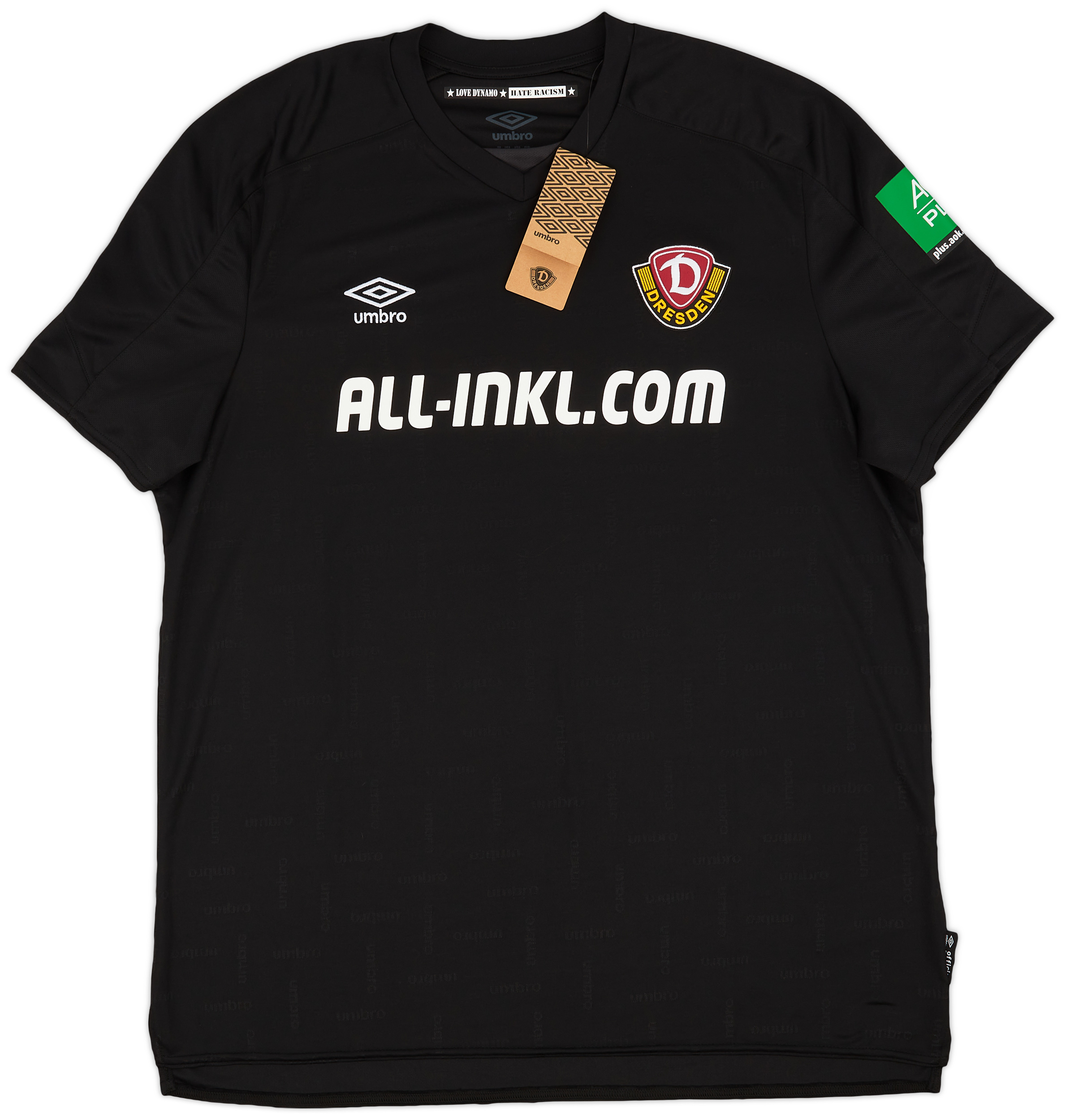Dynamo Dresden
Introduction Dynamo Dresden, a historic football club based in the German city of Dresden, has carved a unique identity in the realm of German football. Founded in 1953, the club has not only endured through various socio-political changes but has also fostered a passionate fanbase and achieved notable successes over the decades. Often referred to […]
2002-03 Dynamo Dresden Home L/S Shirt - 6/10 - (XL)
82.99£ - ca: €98
2021-22 Dynamo Dresden Away Shirt (XXL)
82.99£ - ca: €98
2009-10 Dynamo Dresden Home Shirt Gundersen #9 - 6/10 - (S/M)
82.99£ - ca: €98
2009-10 Dynamo Dresden Home Shirt - 8/10 - (L)
70.99£ - ca: €84
2008-09 Dynamo Dresden Home Shirt - 8/10 - (XS)
70.99£ - ca: €84
2021-22 Dynamo Dresden Away Shirt - 8/10 - (L)
47.99£ - ca: €57
2017-18 Dynamo Dresden Home Shirt - 9/10 - (XL)
47.99£ - ca: €57
2011-12 Dynamo Dresden Third Shirt - 6/10 - (L)
47.99£ - ca: €57
2021-22 Dynamo Dresden Umbro Sweat Top
35.99£ - ca: €42
2013-14 Dynamo Dresden Graphic Tee - 9/10 - (XXL)
29.99£ - ca: €35
2022-23 Dynamo Dresden Umbro Hooded Top
29.99£ - ca: €35
2004-05 Dynamo Dresden Graphic Tee - 6/10 - (XL)
23.99£ - ca: €28
2022-23 Dynamo Dresden Umbro Training Pants/Bottoms
23.99£ - ca: €28
2011 Dynamo Dresden Graphic Tee - 6/10 - (XXL)
17.99£ - ca: €21
2021-22 Dynamo Dresden Home Socks
3.99£ - ca: €5
Introduction
Dynamo Dresden, a historic football club based in the German city of Dresden, has carved a unique identity in the realm of German football. Founded in 1953, the club has not only endured through various socio-political changes but has also fostered a passionate fanbase and achieved notable successes over the decades. Often referred to by their nickname “Dynamo,” the club enjoys a rich heritage that reflects the spirit and resilience of the region.
Club History
The origins of Dynamo Dresden can be traced back to the post-World War II era when a wave of restructuring took place in the German sports scene. Formed as SC Dynamo Dresden in 1953, the club initially served as part of the sports club network operated by the Ministry of the Interior of East Germany. Over the years, Dynamo Dresden became a representation of not just sport, but hope and ambition for many fans in the region.
One key moment in the club’s history came in the late 1970s when Dynamo emerged as a powerhouse in East German football, winning several championships and establishing itself as a rival to clubs like 1. FC Magdeburg. The team often competed in the DDR-Oberliga, the top tier of East German football, where it made a significant impact with consistent performances throughout the 1970s and 1980s.
Achievements
Dynamo Dresden boasts a rich trophy cabinet that speaks to its status in German football history. The club has secured the DDR-Oberliga title a remarkable eight times (1971, 1973, 1976, 1977, 1978, 1979, 1981, and 1985) and has also clinched the FDGB-Pokal (the East German cup) on two occasions in 1972 and 1976.
After German reunification in 1990, Dynamo Dresden transitioned into the Bundesliga, where they faced various challenges but managed to hold their ground at the highest level of German football. The club’s peak in the unified Bundesliga came during the early 1990s when they qualified for European competitions, notably participating in the UEFA Cup.
More recently, the club has competed in the 2. Bundesliga, the second tier of German football, where they have continued to develop and capture the attention of the footballing community.
Significant Players and Matches
In more recent history, players like Marco Hartmann and Niklas Hauptmann have become fan favorites, showcasing loyalty and commitment. Additionally, Dynamo’s heated rivalries, particularly with FC Carl Zeiss Jena and 1. FC Magdeburg, have produced memorable matches that enliven the spirit of local football, often characterized by their intensity and passion.
Cultural Impact
The influence of Dynamo Dresden extends far beyond the pitch. The club is deeply embedded in the cultural fabric of the city, with a dedicated fanbase known for its unwavering loyalty and fervor. The supporters, known as “Dynamo Ultras,” create an electrifying atmosphere during matches at the historic Rudolf-Harbig-Stadion, fostering a sense of community and belonging.
Moreover, the club has been involved in various social initiatives aimed at promoting inclusivity and local engagement. Their motto, “Dynamo Dresden – The club of the people,” exemplifies the club’s commitment to being more than just a football team, serving as a beacon of hope and pride for many in the region.
Conclusion
Dynamo Dresden has undoubtedly etched its name in the annals of football history through its impressive achievements, legendary players, and passionate supporters. The club’s journey, marked by triumphs and challenges, reflects the broader narrative of German football during tumultuous times. As they continue to strive for success in domestic and international arenas, Dynamo Dresden remains a cornerstone of football in Germany, forever ingrained in the hearts of its fans and the broader cultural landscape of the nation.














